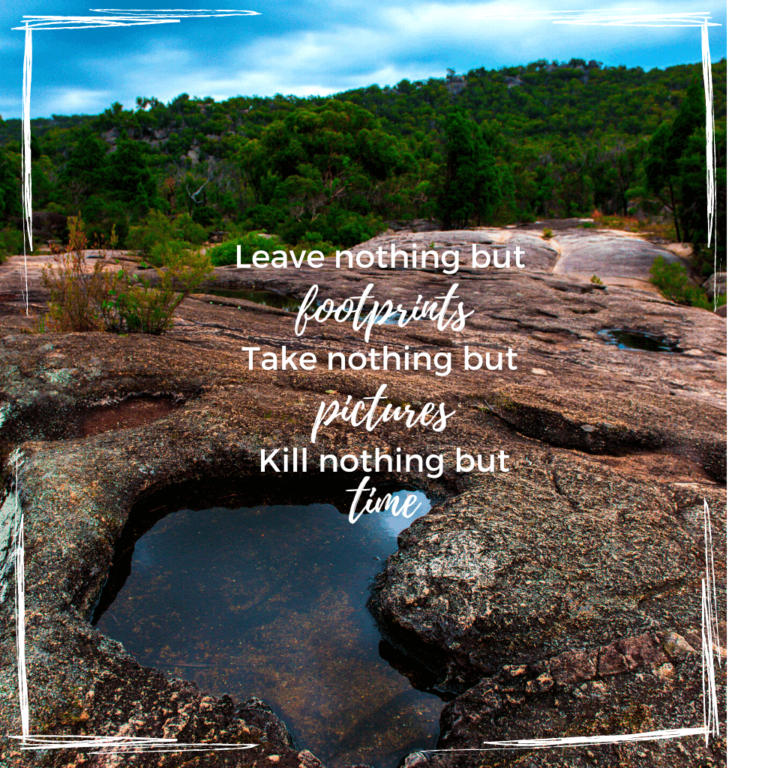Ways To Be More Sustainable On Your Next Camping Trip
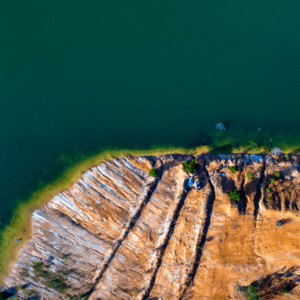
While we should be trying to implement sustainable living practices whether we are living in a house, apartment, or on the road, it can often be easy to overlook or consider sustainability as “too hard”. It is especially important to implement more sustainable practices both in the day to day and while travelling for future generations. Now don’t let the idea of sustainable living overwhelm you. There are different ways in which we can be more sustainable, so don’t think that you have to do everything all at once, or just one particular way. You can make small changes, which if we all do, will make a big difference. Over time, you will hardly even notice the differences though our environment definitely will. For many, there is the concern of cost. Though the initial outlay for some of these changes may be more costly, you fill find that over time you will easily save yourself a lot of money and often time that can be put back into more adventuring.
Let’s take a look at some ways we can become more sustainable while camping (and a lot of these will be easy to put into practice at home too).
Transport
While travelling you want to see and do as much as possible. But do you always need to take the car? Consider travelling with bikes, and then use them to ride to the sites you want
to see or to just go and have a look around town. Alternatively, you could see what local public transport there is, or take a walk.
Your Setup
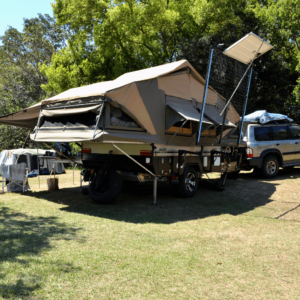
Your setup can have a big impact on your sustainability while travelling. By adding and using a few accessories, you can make life easier and more comfortable for yourself as well.
- The bigger and heavier your van is the more fuel you are going to use. Pack only what you need to keep weights low. Keep in mind that you can purchase or obtain a lot of items at or close to your destination. For example, fill your water tanks as you get closer to your destination rather than heading off with full tanks.
- Is your van properly insulated? If you have an older van, is it time to get this updated?
- Your windows. Opening your windows to allow better air flow rather than always relying on an air conditioner. Consider tinting your windows or if you are renovating your van, opt for windows that are already tinted.
- Hatches can aid with air flow and temperature control.
- Utilise your window furnishings (blinds or curtains) to improve air flow and the internal temperature inside your van.
- Side walls, shades or sunscreens. These are often known by a few different names but essentially do the same thing, provide added shade to help keep you and your van cooler. You will often see people with side wall shades coming off their awnings for extra shade. You don’t need an awning to use one of these. You can add sail track to the other side of your van to shade and help cool down your van. You can also consider a fridge shade which is smaller in size, and is placed on the outside of your van where the fridge is. This will help keep heat off your fridge, to bring temperatures down and thus improve the efficiency of your fridge.
- Use LED lighting. LED lighting is more efficient, has a longer life and are cooler to run.
- Use solar power where possible.
- Use a clothesline to dry your clothes. There are lots of portable clotheslines available. We love the Australian made pegless clothesline by Caravanning with Kids.
Food
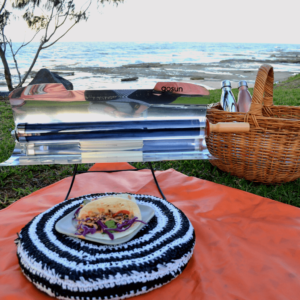
Planning your meals-
How you keep you store your food to get the maximum shelf life is also important. Options to consider:
- Can you travel with your own mini herb garden? While life on the road in a caravan is not always conducive to gardening, if you are travelling for short periods such as a long weekend or week this could very easily be an option for you to grab some of your herbs from the garden to bring along with you.
- Consider how you store fruits or vegetables. Some vegetables such as parsley, celery or lettuce do well in the fridge wrapped in foil. Consider some simple food prep, as some items in your fridge you may be more likely to use, if prepped and stored ready to go such as chopped herbs, shallots, grated or julienne carrots for salads or stir fry. Alternatively, you can try a Swag. The Swag is an ethically and sustainably made product which is available in various sizes designed to help keep fruits and vegetables fresher for longer.
Making your own food especially snacks can help reduce packaging. How you package your snacks is also a big consideration. While traditionally it was common to cling wrap sandwiches and use snap lock bags to keep your goodies in, these are single use plastics and there are other ways that are just as good, if not better. Though these may have a higher initial outlay, as you get so many uses out of them, you will find you save yourself a lot of money in just a short amount of time. Alternatives to use instead:
- Plant based cling wraps
- Beeswax wraps
- Reusable containers- plastic, silicone, glass and even insulated containers are readily available.
- Silicone snap lock bags
- Sinchies re-useable pouches
- Silicone food covers
If making your own is not an option for you, then consider purchasing food and snacks that use sustainable packaging. Look for recyclable and biodegradable options.
When it comes to cooking your food while travelling on the road there is a lot of options available. Many will argue which is the best, from BBQing to using the campfire, but have you considered some of the more alternative methods such as thermal cooking (DreamPot or Ecopot) or solar cooking (GoSun)? They can be simpler than you realise.
Drinks
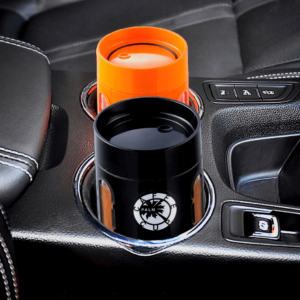
Buy each family member a good quality reusable drink bottle. Save yourself from purchasing costly plastic water bottles. Insulated drink bottles are great too for keeping juice or flavoured milk cold for the kids that can be refilled from a larger bottle which is ideal for cost saving if you are a large family. Don’t forget to pack your travel coffee mugs or smoothie cups. Apart from less waste, the other upside of using your own cup is that your drink usually stays hotter (or colder) for longer.
Toiletries
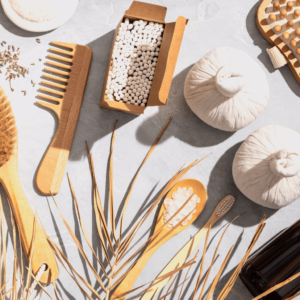
There are a lot of options available, and they will not all work for you, but you may just find something practical for you.
- If travelling for short durations, consider using smaller refillable bottles. This will help keep your weight down too.
- Opt for bamboo cotton tips instead of plastic
- Use Bamboo toothbrushes
- Some dentists have toothbrush recycling for plastic toothbrushes
- Lots of day to day products we use are now available in alternative forms that save on plastic packaging including laundry soaps, dish soaps, toothpaste, deodorant, shampoo and conditioner. Available in a variety of bars, concentrated pouches, jars and re-fillable containers.
- Ditch the plastic loofah and use a bamboo or silicone body brush which are more hygienic and helps to exfoliate and stimulate circulation.
- Read the ingredients of your sunscreens and bug sprays or creams. Choose ones that are safe for use in local waterways.
Cleaning
Like your toiletries, when it comes to cleaning there is a plethora of eco friendly chemicals, brushes and other accessories that can be used.
- Make your own cleaning products. You can google a number of different DIY options for making your own cleaners. Often you don’t need 20 different products to keep you and your van clean. Keep it simple and this will help keep down your weight as well as saving you money on unnecessary products.
- Use biodegradable soap and laundry detergent
- Use bamboo or coconut fibre brushes
Rubbish
Unfortunately, rubbish is something we always end up with. It is a good idea to pack 2 or even 3 bins. One for general waste, one for recycling and a third for composting. While many camp grounds require you to take your rubbish with you when you leave, in Australia there are plenty of roadside rest stops that provide both general and recycling waste bins. If you are heading home, you can take your recycling and compost home to dispose of responsibly. You could even add a fourth bin for all those 10c bottles and cans and put the money back into your travels.
Speaking of your bin, we don’t really like just throwing rubbish straight in the bin, so where you can, use re-usable bags. If this does not sound appealing to you, there is also the option for plant based plastic bags or recycled plastic bags. Next time you are purchasing bags, take a little longer to read the packaging to see what you are buying, and you may be surprised at the options available.
It is a good idea to have a bin that will keep smells in and insects out. The most simple option for those camping in tents or who like to have an outdoor bin, use a plastic box with locking lid to ensure that animals cannot get into your rubbish. However, if you are short on space and are looking for a great on road rubbish bin, look no further than the collapsible bin by Navigator.
Gear
If you are new to caravanning or camping, or you are looking at getting out more and trying different things, before you head out and buy all your own gear, consider borrowing from family or friends to try it out and see if it suits you. You also don’t always have to buy new. Utilise Facebook Marketplace or Gumtree to purchase second hand, or take a look at the local op shops along your travels, you may be surprised at what you will find.
Before you rush off to the shops to make your purchases, do your research. Weigh up your options checkout reviews, ask for advice in Facebook groups, look at what the items are made of. With camping gear, you often get what you pay for. By purchasing quality products, you are more likely to get years of use out of your gear. As well as quality, consider how and what the products are made from. Many items are now made sustainably, made from recycled or repurposed products, or even the products and packaging themselves that can be recycled or composted once they have come to the end of their life.
Power
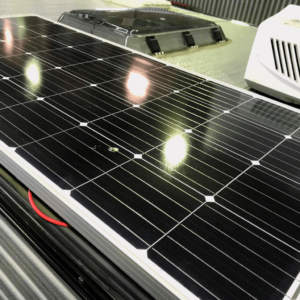
Solar panels and batteries are becoming a common sight in people’s setups with a variety of options available including folding solar panels and solar blankets. Whilst it is better to use solar powered where possible, why not try reducing your need for electrical items. Can you go a day or two without using your mobile phone? If travelling with a friend or partner, alternate and use just the one phone. When you find yourself aimlessly scrolling, put the phone down, or better yet turn it off and try to engage with your family and enjoy your surrounds. While we all enjoy some music, save it for while you are driving. When you are at your camp site, enjoy the sounds of nature. Rather than running the air con all day in the van on a hot day, head outdoors, read a book under a shady tree or head to the creek for a swim to cool you down.
Your House
This one seems simple, but it can be very easy to just walk out the door and head off on your next adventure. Put simply, if you aren’t going to be home, don’t forget to switch off lights, appliances and power points.
There will always be new ways in which we can do things as science and technology advance and attitudes change, so keep looking for the next step that you can take on your sustainability journey. Simply, try to reduce, reuse and recycle where you can as well as read the labels of what you purchase. We would like to leave you with the following mantra which has been taken on by many outdoor enthusiasts.
Leave nothing but footprints. Take nothing but pictures. Kill nothing but time.
x Safe travels everyone.
